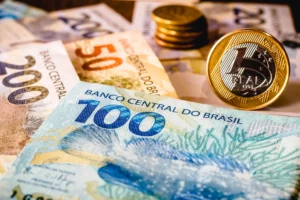Brazil experienced a significant drop in its annual inflation rate, a development that exceeded economists’ forecasts.
This decrease positions Brazil’s central bank to further relax its strict monetary policies.
Official data released on Friday showed a consumer price increase of only 4.47% compared to the previous year.
This figure falls below the 4.63% predicted by Bloomberg’s survey of experts. The monthly inflation rate was modest, at 0.31%.
The central bankers of Brazil have set their inflation target ceiling at 4.5%. The current reduction brings the annual rate within this target, signaling effective monetary control.
Following this news, January 2025 swap rates, which gauge future monetary policy expectations, dropped by five basis points in early trading.

In response, Brazilian authorities plan to cut the benchmark Selic rate to 11.25% next week.
An additional half-point reduction is expected in March, aiming to counter the price surges post-pandemic.
However, Brazilian households still face high living costs, particularly for essentials like food.
President Lula’s Worries
President Luiz Inácio Lula da Silva is increasingly concerned about a potential economic slowdown.
The first half of January saw food and beverage prices rise by 1.53%, and health and personal care items increased by 0.56%.
These sectors drove inflation during this period. In contrast, transportation costs fell by 1.13%, helped by cheaper airfares and fuel.
The downward trend in inflation aligns the annual rate with the central bank’s 2024 target range of 3%, plus or minus 1.5 percentage points.
Analysts now see an opportunity for more aggressive monetary easing.
Andrés Abadía, a noted economist, anticipates a 50 basis-point rate cut soon and doesn’t rule out bolder measures due to the economic situation. High real interest rates pose a challenge to Brazil’s recovery.
High borrowing costs, which slowed inflation from its 2022 peak of over 12%, now hamper growth.
With limited budgetary space, there’s concern over President Lula’s approach to economic stimulation through state interventions.
The government’s recent announcement of significant investments in modernizing key sectors caused market unease.
These plans are part of Lula’s strategy to enhance Brazil’s competitiveness globally.
Despite inflation’s decline, economists predict it will remain above the central bank’s 3% target in the near term, largely due to doubts about the government’s commitment to fiscal discipline.
This scenario underscores the intricate link between inflation rates, monetary policies, and economic health.

